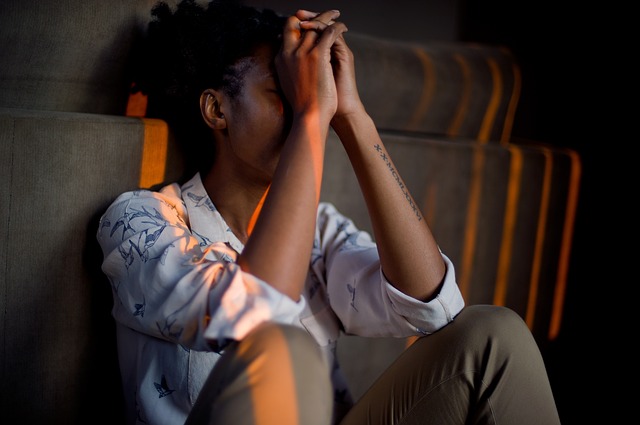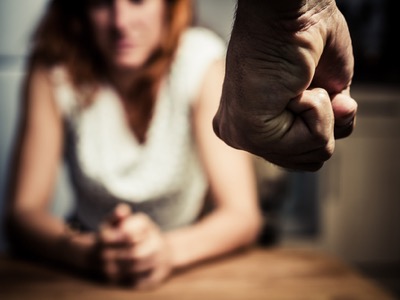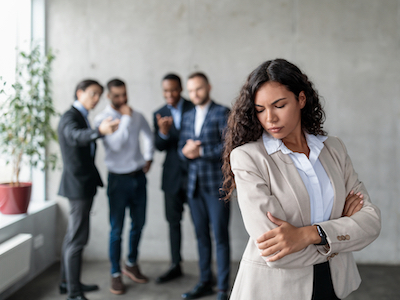The cries of domestic abuse victims have been hushed by the revelry of England’s success in the World Cup so far.
Yet should they lose, local authorities have issued warnings for a rise in domestic violent incidents.
Lancaster University found that incidents rose 38 per cent when England lost a match in the 2014 World Cup, and this is archetypal of World Cup tournaments: the 64 reports of domestic violence in 2002 rose to 99 in 2010, causing several forces to back the campaign ‘Give Domestic Abuse the Red Card’ this year.
More than 90 per cent of domestic abuse victims are female, while five to ten per cent are male. However, the 15 per cent of black, Asian or ethnic minority victims (BAME) – and migrants on a Spouse Visa UK – bear the brunt of abuse in silence 1.5 times longer than White, British or Irish women according to the national charity Safe Lives. And, as we know, ‘Silence Kills.’
Suffering in Silence
Mirela Sula, the founder of the Migrant Women Association, wrote in the Guardian that migrant women, women of colour and women on low incomes face a higher risk of domestic violence yet are significantly less likely to seek support.
BAME migrant women are some of the most vulnerable victims of abuse in our society. Being far from home, their families rarely intervene or even know about the suffering their loved one is enduring. Domestic abuse can be taboo in many households, yet for international women, the problem can be exacerbated by heavily religious affiliations and communities. Children are usually the only family migrant women have in the UK, aggravating their anxieties since reporting the abuse could lead to ostracization from the community, friends or family, as well as stigmatisation and even racial abuse from their abuser’s relatives.
Migrant women are ill-equipped when tackling an abusive spouse. It is not uncommon for these women to speak little English and possess limited knowledge of their human rights in the UK. Their fears of rejection from the authorities are two-fold: miscommunication or even institutional racism could see their plea for help refused.
The prevailing problem for international women facing abuse in the UK, however, is that they depend wholly on their perpetrator in accordance with immigration and visa law. Migration rules dictate that the ‘UK Sponsor’ controls the immigration status of their spouse’s visa. Abusers exploit the language barrier and emotionally blackmail their victims with threats of deportation or detention should they “disobey” in any way. Some victims are unable to return to their native country since they could face conflict, war or familial rejection there, too. Unable to flee or speak to the police without fearing deportation, the abuser succeeds in distancing the victim – both physically and psychologically – into deep isolation.
How to Escape Violence on a Spouse Visa
The Spouse Visa requirements are as follows:
- You can live in the UK for 30 months
- You must live with your UK Sponsor
After the 30-month period, reapplying for the Spouse Visa will permit the applicant with an additional 30 months in the UK. Only once migrants have passed the five-year threshold, they qualify to switch from a Spouse Visa to ILR (Indefinite Leave to Remain).
During this time, migrants depend upon their UK Sponsor since they have no access to public funding such as benefits, free healthcare or social housing. Indicative of an abusive relationship, the prospect of fleeing an abusive home while financially starved seems impossible.
Fortunately, the UK government recognises that five years is too long to live at the mercy of an abuser. There is a loop-hole route to ILR for survivors of domestic violence – even if the marriage lasts less than five years. Many migrant women don’t know that they can have a Spouse Visa curtailment (a divorce) and still remain in the UK without breaking any rules.
However, if you are a migrant facing domestic abuse from your British partner (or someone with ‘Settled Status’ in the UK), there are a process of steps you must complete in order to stay within the guidelines of immigration law. Firstly, it is of paramount importance that you inform the Home Office of the abuse and outline any evidence using at least one letter from:
- A GP or medical practitioner
- Social services
- A women’s refuge
Any official court documents or police reports are considered as invaluable evidence.
Afterwards, survivors can immediately apply for the ‘Destitute Domestic Violence Concession’ (DDV)’, permitting them with access to public funding and financial support for three months while their case and visa status are being reviewed.
However, the survivor could be deemed ineligible for ILR should they have any unpaid healthcare charges from the NHS over £500. Controversially, women could be refused help if they have faced too much physical violence. It is important that survivors seek specialist legal advice from a qualified UK immigration lawyer as they can assist with the entire transition, as well as applying for Legal Aid on behalf of the victim which financially covers the legal costs as well as any outstanding debts.
Migrant women facing abuse have no other option but to become destitute and alone in a foreign country – or risk their life staying with their abuser. Turing to the authorities is an extremely difficult, dangerous and irreversible decision. But it is time we break the silence with our migrant sisters: if you fear for the worst for a neighbour, colleague or even a stranger, offer her some private help. There is even an app launched that caters to different languages called ‘Bright Sky’ which is intended to assist victims and even offers advice to concerned friends and family. There are many astounding charities, shelters and refuges across the UK that not only can assist with financial cover, but provide emotional support to all destitute women. These places are a safe haven and often the last lifeline vulnerable women need before being able to rebuild their lives.
 About the author
About the author
Olivia Bridge is a specialist content writer and political correspondent for the Immigration Advice Service, which is the leading law firm for UK Immigration Lawyers.









